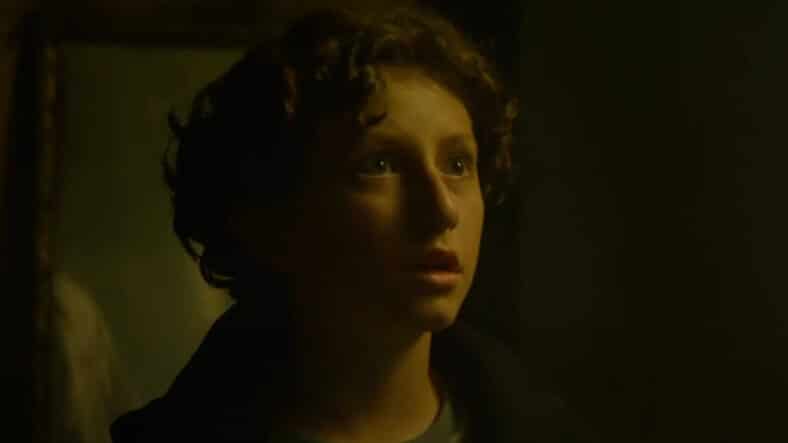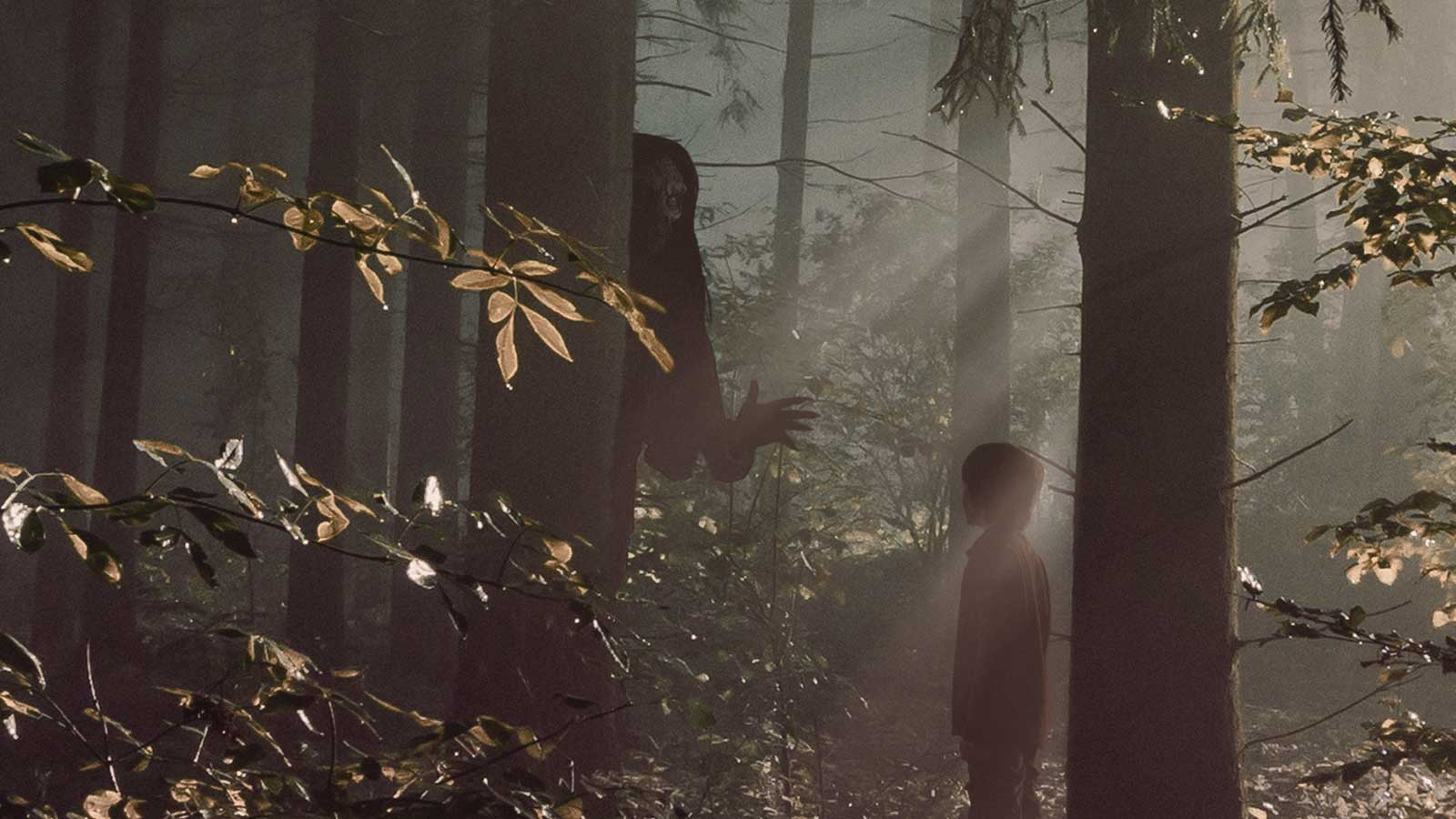
Whilst Slapface (2021) starts out with very broad strokes – literally showing us big brother Tom (Mike Manning) and Lucas (August Maturo) taking turns to slap each other as some sort of proxy household meeting – it soon becomes something if not altogether subtle, then certainly altogether more considered. Likewise, the opening credits, with their medieval woodcuts of witches and demons, show us a local legend of a ‘woman in the woods’, but Drag Me To Hell, this ain’t. Slapface works by combining a childlike fascination with these folk tales and monsters together with very real experiences of trauma which drive a troubled child towards a fantasy world. How these two spheres meld makes for an often disconcerting, sad story.
So Lucas is very much drawn towards stories of witchcraft and magic, and little wonder: who wouldn’t want this kind of escapism, and of course the hints that there’s more out there, beyond a world in which you are increasingly powerless? Lucas and Tom have recently lost their mother; Tom is doing his best to fulfil the role of parent(s) in their mother’s absence, but has a hard time understanding Lucas: the kid is socially maladroit, isolated and reticent. The closest Lucas gets to a friend group is being bullied by some local girls: one day, they dare him to enter an abandoned institution associated with the myth of the ‘Virago’ – and he sees something. The Virago – a towering female entity who would put the best of the caricature woodcut witches to shame – takes an interest in him, and even seems to want to befriend him. A friend, at last: but at what cost?
The presence of the Virago is important – it’s really key to this film sitting in the horror genre at all – but equally so, the film has a lot to offer on social context, especially in terms of masculinity and femininity. With the glaring gap in their lives left by their mother’s death, Tom (and by extension, Lucas) seem to be coping by becoming hyper-masculine, hence the physically violent ‘game’ they play to sort out their disputes and ‘blow off steam’. Tom has a good heart in there somewhere, but ploughs his energies into being a provider – admittedly, totally necessary – but then drinks his time away in a local bar, hitting on women and making a general nuisance of himself. He’s usually absent from Lucas’s life, and his young brother strays increasingly into his own world: it’s here that he’s fair game for the attentions of the ‘woman in the woods’, who takes every opportunity to get closer, lashing out at anyone else in Lucas’s immediate vicinity. As for the women in the narrative, well, this isn’t a good world for being a decent woman. If you’re not a violent bully or a legendary crone, you’re unlikely to have an easy time here. Anna (Libe Barer), who has a short relationship with Tom, tries her best to instil some sense of normality in the brothers’ household, but her attempts to slot into the ‘mom’ role act more as a catalyst for Lucas’s anger. Reasonably unperturbed when she storms out, Tom takes to driving around town in her car, neatly encompassing the way the two boys are happy to inhabit, or otherwise take an aspect of female identity without necessarily giving much credit to it.
The Virago is an interesting creature – silent, ambiguous, hostile, and focused on her new young charge – but you can always sense something else hanging in the air here. Whatever she is, she clearly fills a gap in a lonely and alienated life, and this is a film rich in alienation, with an uncomfortable, layered mood to match. Is she a symbol, Babadook-style, or a character in her own right? Honestly, the film works just fine with either reading, and though it holds off on an easy sense of closure for most of its running time, the overarching feeling is of a very heavy, unflinching film and an exploration of trauma.
Indeed, the whole film simmers with trauma, particularly with regards to families, and talking openly about family members who are now gone is forbidden by Lucas, who would rather choke on that pain than confront it. For all characters in this particular family and those who come close to it, mothers may be absent, but fathers weigh particularly heavily. Slapface is by no means a fun and entertaining watch, though it’s very good at what it does, offering a horrific, fantasy-ridden exploration of bereavement and the pitfalls of finding the wrong way through it. There’s some similarity to pre-existing films – horror has been interrogating monsters for nearly a hundred years – but this is a worthwhile exploration of monstrosity, and wherever they found August Maturo, he’s superb and fits the bill here perfectly.
Slapface (2021) will be released on SHUDDER on 3rd February 2022.
